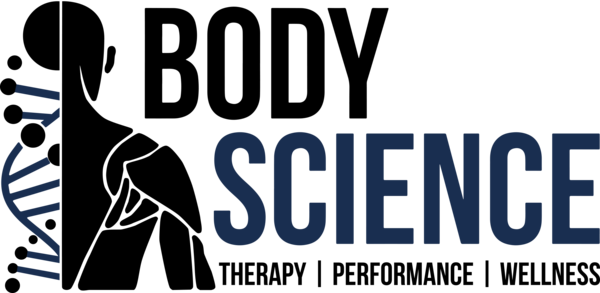
Temporomandibular joint (TMJ) disorders can cause significant discomfort and impact daily activities. Craniosacral therapy is a gentle, hands-on approach that has shown promising results for TMJ pain relief. In this post, we will explore how chiropractors use craniosacral therapy to treat TMJ, its benefits, and what to expect during a session.
Understanding Craniosacral Therapy
Craniosacral therapy (CST) is a gentle, non-invasive form of bodywork that focuses on the craniosacral system, which includes the membranes and cerebrospinal fluid surrounding the brain and spinal cord. CST aims to enhance the body’s natural healing processes by improving the flow of cerebrospinal fluid and relieving tension in the central nervous system.
For TMJ disorders, craniosacral therapy works by releasing tension, improving jaw alignment, enhancing circulation, and promoting relaxation.
Benefits of Using Craniosacral Therapy for TMJ Pain
Craniosacral therapy offers several benefits for individuals suffering from TMJ disorders:
- Non-Invasive Treatment: CST is a gentle, hands-on therapy that does not involve surgery or medication, making it a safe option for many individuals.
- Pain Reduction: By addressing the root causes of TMJ pain, such as muscle tension and improper function, CST can provide significant pain relief.
- Improved Jaw Function: Regular CST sessions can help improve jaw mobility and function, making it easier to speak, chew, and perform other daily activities.
- Holistic Approach: CST considers the whole body and its interconnected systems, promoting overall health and well-being.
- Reduced Stress and Anxiety: The relaxing nature of CST can help reduce stress and anxiety levels, which are often linked to TMJ disorders.
- Enhanced Sleep Quality: Many individuals report better sleep quality after CST sessions, as reduced pain and stress contribute to more restful sleep.
How Craniosacral Therapy Differs from Other Treatments
Craniosacral therapy stands out from other treatments, due to its gentle technique, holistic focus, and non-invasive nature.
Unlike other treatments that use more forceful adjustments, CST employs a light touch, often described as the weight of a nickel, to manipulate the craniosacral system, including the membranes and cerebrospinal fluid around the brain and spinal cord. This system is not typically targeted by conventional TMJ treatments. CST also takes a holistic approach, addressing the entire body to find and treat the underlying causes of TMJ pain, rather than just the symptoms.
Additionally, CST is drug-free and non-invasive, working with the body’s natural healing processes. This makes it a unique and appealing option for those seeking gentle, comprehensive relief from TMJ disorders.
What to Expect During a Craniosacral Therapy Session
During a craniosacral therapy session for TMJ, you can expect the following:
- Initial Consultation: Your chiropractor will start with a consultation to discuss your medical history, symptoms, and treatment goals.
- Comfortable Environment: You will lie fully clothed on a comfortable treatment table in a quiet, relaxed setting.
- Gentle Touch: The chiropractor will use a very light touch, typically starting at the base of the skull and working their way down the spine and other areas as needed.
- Focus Areas: The chiropractor will focus on releasing tension in the jaw, neck, and head, using gentle manipulations to improve alignment and fluid flow.
- Relaxation: Many individuals feel deeply relaxed during and after the session, often experiencing immediate relief from tension and pain.
- Post-Treatment Discussion: After the session, your chiropractor may discuss any findings and recommend a treatment plan, including follow-up sessions and self-care practices.
Potential Side Effects Associated with Craniosacral Therapy for TMJ
Craniosacral therapy is generally considered a safe and well-tolerated treatment option for TMJ disorders. Most people find CST to be gentle and non-invasive. However, as with any therapy, there are a few potential side effects and risks to be aware of. Some people may experience mild discomfort or soreness in the treated areas following a session, which is usually temporary and resolves within a day or two. It is also common to feel tired or sleepy after a session as the body adjusts and begins the healing process.
In very rare cases, individuals with certain medical conditions, like recent head trauma, severe bleeding disorders, or acute infections, may need to avoid CST. Choosing a qualified and experienced chiropractor is essential to ensure safe and effective treatment.
Combining Craniosacral Therapy with Other Treatments for TMJ
Craniosacral therapy can be effectively combined with other treatments for TMJ disorders to enhance overall outcomes and provide comprehensive care. Some complementary treatments include:
- Physiotherapy: Exercises and manual therapy techniques provided by a physiotherapist can strengthen jaw muscles and improve function. CST can complement these efforts by reducing tension and promoting relaxation.
- Chiropractic Care: Chiropractic care can help improve spine and jaw function, reducing pain and improving mobility. CST can support these by addressing underlying tension in the craniosacral system.
- Massage Therapy: Massage therapy can relieve muscle tension and improve circulation. When combined with CST, it provides a holistic approach to managing TMJ pain.
Integrating these treatments can provide a more comprehensive and effective approach to managing TMJ pain and improving overall well-being.
Who Can Benefit From Craniosacral Therapy for TMJ
Craniosacral therapy can be beneficial for a wide range of individuals suffering from TMJ disorders. Good candidates for CST include:
- Individuals with Chronic TMJ Pain: Those experiencing persistent jaw pain, headaches, or neck pain related to TMJ disorders may find relief through CST.
- Individuals Seeking Non-Invasive Treatments: CST is a gentle, non-invasive option suitable for individuals looking to avoid surgery or medication.
- Those with Stress-Related TMJ Issues: If stress and tension contribute to your TMJ symptoms, CST can help promote relaxation and reduce muscle tension.
- Individuals with Limited Mobility: CST can improve jaw mobility and function, making it ideal for those struggling with stiffness or difficulty moving the jaw.
- People Looking for Holistic Care: CST provides a holistic approach to health, addressing the whole body and its interconnected systems, which can be appealing to those seeking comprehensive care.
Before starting CST, it is essential to consult with the chiropractor to ensure it is the right treatment for your specific condition and needs.
Jaw Pain No More!
Craniosacral therapy offers a gentle, non-invasive approach to managing TMJ disorders, providing significant pain relief and improving overall well-being. By addressing the underlying causes of TMJ pain and promoting the body’s natural healing processes, CST can be an effective component of a comprehensive treatment plan.
At Body Science Therapy, our skilled team in Mississauga is dedicated to providing personalized craniosacral therapy to help you manage TMJ pain and improve your quality of life. Contact us now to book your appointment and start your journey towards pain-free living and enhanced well-being.
Author
-
Dr. Kyle Gill is a passionate Chiropractor dedicated to helping you feel better than you ever have before. His goal is to give you the opportunity to live the pain-free and unrestricted life we all deserve. Dr. Kyle uses a comprehensive approach to get you out of pain and increase your function to levels you may not have thought possible. He analyzes the body through a biotensegrity lens where the guiding principle is bringing ease to the painful, tight, and dysfunctional areas of the body. This discovery process directs how he applies a precise and specific chiropractic adjustment, while always prioritizing patient comfort.
Recent Posts

